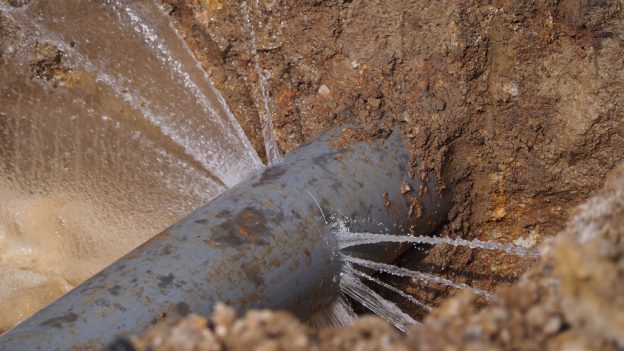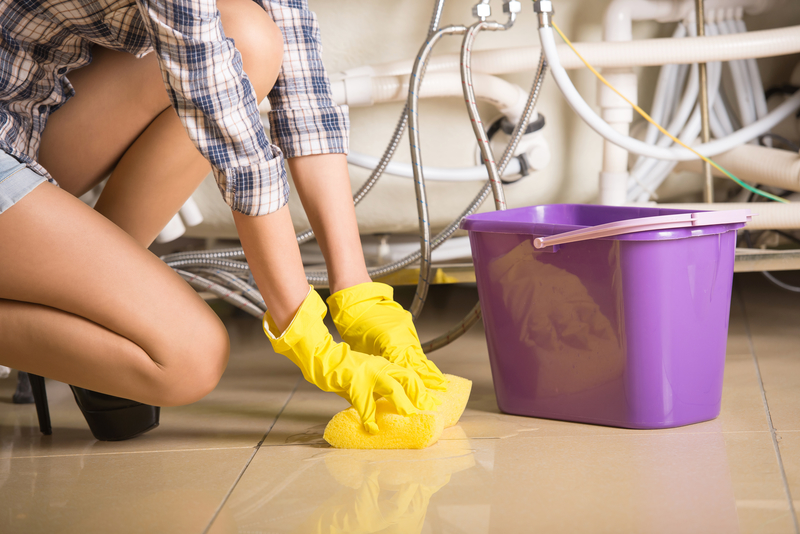Almost everyone has got their private rationale with regards to How to Find and Prevent Water Leaks in Your Home.

"Be careful of little expenses. A small leak will certainly sink a wonderful ship." - Benjamin Franklin.
He could not have actually been extra right because water leakages in our residences lead to a waste of resources, enhancing our water bills. This increase might appear negligible at initially, it can lead to significant expenses that can break your financial institution. In addition to a boost in bills, water leakages likewise create unwanted organic development, structural damage, and also even electric risks.
Finding out if you have a water leakage isn't always easy due to being incapable to see a lot of the pipework in your house. If you have had an increase in your water bills lately, discovered water discolorations on ceilings and also walls, smelt lousy smell, and so on. You could intend to take into consideration asking for plumbing solutions to get it looked into.
There are a number of reasons for water leaks, as well as we have put together the usual factors below. Check to see if you have had related concerns in your home just recently.
Deteriorated pipe joints
Pipeline joints are the parts of our plumbing system where the pipes link. It is important to keep in mind that even though pipelines are created to stand up to stress as well as last for a while, they weren't created to last permanently; as a result, they would certainly degrade over time. A typical indicator of harmed pipe joints is extreme sound from faucets.
High water stress
You saw your residence water stress is higher than common but then, why should you care? It runs out your control.
It would be best if you cared because your ordinary water stress ought to be 60 Psi (per square inch) as well as although your home's plumbing system is made to stand up to 80 Psi. An increase in water pressure can place a strain on your house pipelines and cause splits, or worse, ruptured pipelines. Obtain in touch with a professional concerning regulating it if you ever discover that your house water pressure is higher than typical.
Corrosion
As your pipework grows older, it gets weak as well as a lot more prone to corrosion after the constant flow of water through them, which can gnaw at pipelines as well as trigger cracks. A noticeable indication of corrosion in your house plumbing system is staining as well as although this could be tough to find because of most pipelines hidden away. Once they are old to guarantee an audio plumbing system, we advise doing a regular appointment every couple of years and alter pipelines
Clogged drains
Food bits, dust, as well as grease can create clogged drains and block the flow of water in and out of your sink. If undealt with, enhanced stress within the seamless gutters can cause an overflow and also end up splitting or breaking pipelines. To avoid clogged drains pipes in your house, we encourage you to avoid putting fragments down the tubes as well as normal cleansing of sinks.
Broken seals
An additional source of water leaks in residences is damaged seals of home devices that use water, e.g., a dish washer. When such home appliances are installed, seals are set up around water adapters for easy flow of water through the device. Therefore, a damaged seal can cause leak of water when being used.
With little or no expertise of plumbing, recognizing your residence's plumbing system adequate to repair some of these issues (without effect) can be a hassle. Connect with plumbing professionals in Pittsburgh, Providence, Rochester, as well as environ today, and they'll make those concerns go away.
He could not have been much more right due to the fact that water leaks in our homes result in a waste of sources, raising our water expenses. If you have had an increase in your water bills lately, discovered water spots on walls and also ceilings, scented poor odor, and so on. A boost in water stress can place a stress on your home pipelines and lead to fractures, or worse, burst pipelines. One more cause of water leaks in homes is broken seals of residence appliances that use water, e.g., a dish washer. When such devices are installed, seals are set up around water connectors for simple flow of water through the maker.
5 TIPS IN DETECTING A WATER LEAK IN YOUR HOUSE
Water leaks can be hard to find in your home, yet they can be so common. We rely on water every day in our home, which is why a leak can cause big problems. By detecting them early, you can save money and further damage, getting the problem fixed as soon as possible. Here are 5 tips to help you detect a water leak in your home, so you can contact a plumber straight away and get the issue sorted.
Check your water meter
Many people underestimate the value of the water meter in their home. It can be one of the best ways to tell if you have a leak early on, so you can get on top of it before issues start arising. Start by turning off all the water in your home: taps, washing machine, dishwasher, etc. Now take a look at the meter – if it’s still changing with everything turned off, it’s likely you have a fast-flowing leak that you need to get on top of straight away. If nothing changes, then leave your meter for an hour or two and come back to it. Did it change in this time? It’s likely you have a slower leak, which isn’t as urgent but still handy to get fixed so it doesn’t become a bigger problem.
Keep an eye on your bill
Another good way to detect a leak in your home is by keeping an eye on your water bill. It helps if you have a past bill from the same period of time. You can compare like for like and determine whether your water usage has increased significantly. If it has, there may be a leak in your system that you haven’t picked up before. A professional plumber can check through all of your pipes and determine where it is coming from.
Look for damage
If you have a leak inside your home, you will notice damage over time. Take a look at your showers and bathtubs and note whether any of the tiles surrounding the area seem to be discoloured or damaged in any way. There may be water stains, mould or peeling material that has resulted from a build up of moisture over time. Make sure you take a look under sinks at the back of cupboards that don’t get accessed regularly. This is where damage can go unnoticed and build up over periods of time.

Hopefully you enjoyed our part on Where to Find Water Leaks. Many thanks for taking a few minutes Where to Find Water Leaks post. Don't hesitate to take the opportunity to distribute this article if you enjoyed reading it. Thanks a lot for your time invested reading it.
Professional-grade solutions.